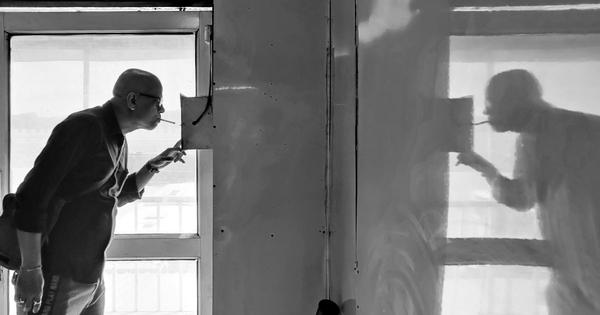
Prologue: The nicotine gambit
Schiphol Airport, December 2008.
Coordinates: 52.3169° N, 4.7459° E.
The Departures board flickered an ominous timeline: São Paulo – 3h 45m. Then, a five-hour layover in Guarulhos. Then, finally, Buenos Aires. The maths was brutal: 14 hours without a cigarette. A primal panic set in, mirroring the existential dread of Ryan Bingham in Up in the Air, clutching his loyalty cards like rosary beads. Both scenarios expose the central lie of “frictionless travel”: we are all just one unchecked craving away from completely unraveling.
Schiphol’s terminals gleamed with sterile Dutch efficiency, but for a nicotine fugitive, they felt like a lockdown. I stared at my passport, then at the exit sign. I had a multiple-entry visa, a December chill, and sheer audacity. And so, I executed my plan: I breached the sanctum of the transit zone, stamping into Amsterdam for two-hour rebellions. Exit the terminal, light up, re-enter – each ritual punctuated by sips of coffee that tasted like battery acid. Each drag was a petty, glorious triumph over the universal tyranny of no-smoking signs.
Later, the border officer’s eyebrow arched at my passport. “Entered just two hours ago?” Her query dissolved into my confessional plea. “I’m a smoker too,” she finally said, a knowing twitch at the corner of her lips as she stamped me through. I sprinted to the gate, lungs full of Dutch air and defiance.
The non-place paradox: Theatres of liminality
The French anthropologist Marc Augé coined the term “non-places” for spaces like airports – transient voids where human identity dissolves into the banalities of boarding passes and baggage claims. But my Schiphol saga betrayed that sterile theory. The immigration officer’s smirk transformed her booth into a confessional. For 28 seconds, we were no longer merely traveler and bureaucrat but co-conspirators in the beautiful farce of modern motion.
Airports are liminality incarnate, thresholds between here and there, self and stranger, control and chaos. The writer Pico Iyer, who once lived at LAX months to study rootlessness, calls them “stateless zones of grey affect”.
Yet within these zones, humanity flickers persistently like a faulty departure board. A mother bribes her toddler with a 10-euro croissant. A businessman spills espresso on his tie and curses in fluent Mandarin. A teenager films her first solo trip for TikTok. These vignettes are the soul of transit – proof that so-called non-places teem with life, however fleeting.
The architecture of anonymity and secrets
Paradoxically, airports are designed to anonymise, yet they amplify our most human quirks. Consider the Duty-Free maze, a capitalist purgatory where Chanel No 5 and Toblerone bars promise a sense of belonging that is as temporary as it is expensive. The lounge is a rigid caste system disguised as a room of leather armchairs, where Platinum members sip champagne while economy travellers guard power outlets like territorial dragons. And the restroom remains the great equaliser, where a former prime minister and a penniless backpacker both queue for the same sinks.
These glass-and-steel terminals are cathedrals of paradox. Their transparent walls preach openness, yet they thrive on secrets – the affair sparked at Gate B12, the undocumented migrant praying quietly in a multi-faith room, the smuggled necklace tucked into a sock. They are designed for flow, but they are built on stories.
The Global Soul’s playground
In his book The Global Soul, Pico Iyer observes, “We build our cities around airports now; cities are becoming like airports – places to leave from more than to live in.” He chronicles LAX as a “cradle of disconnection”, a place where travellers sob at baggage claims and evangelists peddle salvation. My Schiphol rebellion was but a footnote in this epic – a smoker’s quest for a shred of agency in a system built to erase it.
Iyer’s “global soul” is the ideal citizen of these zones, untethered and fluent in jet lag and lounge codes. Yet even he confesses to cracking under the weight of perpetual motion, waking up in a Tokyo hotel unsure of continent, language or decade. Airports, for all their promises of connection, are ultimately monuments to our existential vertigo.
Ryan Bingham’s backpack and other talismans
George Clooney’s Ryan Bingham is the global soul’s patron saint. He preaches a gospel of emotional minimalism – famously asking “What’s in your backpack?” – while collecting airline loyalty points like sacraments. His tragedy isn’t loneliness, but his profound refusal to see that human connection is the only destination that matters.
My Schiphol lighter was a smaller rebellion, but no less poignant. Both Ryan and I clung to our talismans – his Platinum Card, my pack of Marlboros – to mask our inherent fragility. Airports expertly reward such delusions. They sell us the seductive lie that motion equals freedom, all while quietly pocketing our humanity at every security check and overpriced bar.

The unseen cast and the layover’s secret society
For every visible passenger, an army of invisible labour keeps the cathedral running. Janitors cleaning vomit at 3 am, chefs frying eggs for 300 languages, mechanics de- icing wings in blizzards. At DXB, I met Rafique, a cleaner from Bangladesh. “I haven’t seen daylight in a week,” he said, scrubbing a urinal. Airports, like ancient pyramids, are built on invisible backs.
Yet, layovers also breed strange and fleeting intimacies. In Doha, I met a man who’d missed seven connections to Karachi. “I’m a professional layover artist,” he joked.
Over shared shisha, he confessed, “I’m afraid to stop moving.” Incheon’s nap pods, JFK’s secret TWA Hotel – these are the sanctuaries for the stateless. We swap stories like currency, a secret society bound by the unspoken rule that we will never meet again.
Epilogue: The aftertaste
Years later, I remember not the flight to São Paulo but the Dutch cold biting through my jacket, the battery-acid espresso, the officer’s knowing glance. Airports, like life itself, are less about destinations than about the strangers who briefly glimpse our unraveling – and sometimes, against all odds, hand you a lighter.
As Pico Iyer writes in The Art of Stillness, “The more we move, the more we carry our prisons with us.” But in those shared prisons, between flights and frustrations, we sometimes find fellow inmates. The global soul’s true anthem isn’t wanderlust – it’s the quiet hum of solidarity found in a stranger’s smirk, a shared complaint, or a conspiratorial stamp in a passport.
Espresso Note to self: Always pack extra cigarettes. And gratitude.
Zakir Kibria is a writer and nicotine fugitive. Once successfully smuggled a lighter through three continents. His email address is zk@krishikaaj.com.
📰 Crime Today News is proudly sponsored by DRYFRUIT & CO – A Brand by eFabby Global LLC
Design & Developed by Yes Mom Hosting






